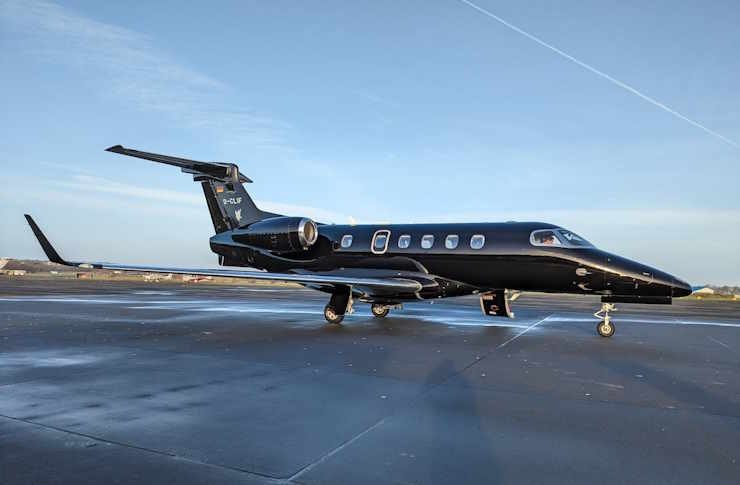What to Know About Starting a Career as a Private Jet Attendant
Flying aboard private aircraft offers a level of service that’s both exclusive and highly specialized—and behind the scenes, private jet attendants are trained to meet the demands of this elite travel space. This guide explores what candidates typically consider when entering the field, including qualifications, service expectations, and pathways people follow when exploring this unique career path.

What Private Jet Training Entails
Private jet training is significantly more specialized than commercial flight attendant preparation. Training programs typically last between 5-14 days and focus heavily on safety protocols specific to private aircraft. Unlike commercial aviation, private jet attendants must be familiar with numerous aircraft types, as they may work across different models depending on client needs.
Most training programs cover emergency procedures, CPR and first aid certification, food safety handling, wine and champagne service, and cultural etiquette for international travel. Additionally, private jet attendants learn cabin preparation techniques, VIP service standards, confidentiality protocols, and high-end culinary presentation. Many programs also include modules on conflict resolution and managing difficult situations discreetly—a crucial skill when dealing with high-profile clients.
Understanding Flight Attendant Salary in Private Aviation
The compensation structure for private jet attendants differs significantly from commercial airlines, with earning potential often surpassing traditional flight attendant roles. Entry-level private jet attendants typically start with base salaries between $50,000 and $70,000 annually, while seasoned professionals with established client relationships can earn well over $100,000 per year.
Compensation packages frequently include per diem allowances ranging from $75 to $150 daily during trips, generous accommodation allowances, and performance bonuses. Contract flight attendants often earn $300-$500 per day plus expenses. Many private aviation companies also offer health benefits, travel privileges, and performance incentives based on client satisfaction.
Prices, rates, or cost estimates mentioned in this article are based on the latest available information but may change over time. Independent research is advised before making financial decisions.
Exploring Luxury Travel Careers Beyond Flying
Private jet attending represents just one avenue within the broader luxury travel career landscape. Many professionals use their experience as a springboard to related opportunities in high-end hospitality and travel services. Career progression may include becoming a lead attendant, cabin service manager, or transitioning to private yacht service.
Some experienced attendants leverage their connections to become travel concierges, private household managers, or lifestyle consultants for affluent clients. Others move into training roles at corporate flight attendant schools or pursue entrepreneurial ventures in luxury travel planning and VIP event management. The transferable skills gained—discretion, anticipatory service, problem-solving under pressure, and cultural adaptability—are highly valued across the luxury service industry.
Selecting the Right Corporate Flight Attendant School
Choosing the appropriate training program is crucial for breaking into private aviation. When evaluating corporate flight attendant schools, several factors should be considered, including industry reputation, placement records, and curriculum comprehensiveness.
Leading programs like FlightAttendantPrep, Beyond and Above, and Aircare FACTS provide comprehensive emergency training alongside luxury service protocols. The Corporate Flight Attendant Training Institute offers specialized certification programs with strong industry connections. Most reputable programs range from $3,500 to $8,000 for complete training packages.
The most effective schools offer hands-on experience in actual private jets, connections to potential employers, and post-graduation placement assistance. Many successful candidates also pursue additional certifications in wine service, culinary arts, or foreign languages to enhance their marketability.
| Training Provider | Program Length | Cost Range | Key Features |
|---|---|---|---|
| FlightAttendantPrep | 7-10 days | $4,000-$5,500 | FAA-approved safety training, cabin service excellence, wine appreciation |
| Beyond and Above | 5-7 days | $3,500-$4,500 | Business aviation focus, cultural etiquette, industry networking |
| Corporate Flight Attendant Training Institute | 10-14 days | $6,000-$8,000 | Comprehensive certification, simulator training, job placement service |
| Aircare FACTS | 5 days | $3,500-$4,000 | Emergency procedures emphasis, in-flight medical response training |
Prices, rates, or cost estimates mentioned in this article are based on the latest available information but may change over time. Independent research is advised before making financial decisions.
Essential Qualifications and Personal Attributes
Success in private aviation requires a specific combination of qualifications and personal characteristics. Most employers look for candidates with at least 2-3 years of customer service experience, preferably in hospitality or commercial aviation. While a college degree isn’t always mandatory, it’s often preferred, particularly in hospitality management, tourism, or related fields.
Beyond formal qualifications, private jet attendants must possess exceptional interpersonal skills, discretion, adaptability, and poise under pressure. The ability to anticipate needs before they’re expressed is paramount. Strong communication skills, including foreign language proficiency, significantly enhance employability. Most critically, private jet attendants must be flexible with scheduling, as trips are often arranged with minimal notice and may extend unexpectedly.
The Reality of the Private Jet Lifestyle
The private aviation lifestyle comes with both remarkable privileges and distinctive challenges. While the job offers opportunities to visit exclusive destinations, stay in luxury accommodations, and interact with fascinating individuals, it also demands significant personal sacrifice. Attendants must maintain constant availability, often missing holidays and family events with little notice.
The schedule can be extremely irregular, with periods of intense work followed by downtime. Many private attendants work on-call rotations of 7-14 days, during which they must be ready to depart within hours. Building a consistent personal life requires exceptional boundary-setting and time management skills. Despite these challenges, many professionals find the unique experiences, cultural exposure, and professional autonomy deeply rewarding and well worth the lifestyle adjustments required.
Private jet attending represents a sophisticated career path that combines luxury service with global adventure. With proper training, dedication to exceptional service, and realistic expectations about the lifestyle demands, this profession can offer both financial rewards and extraordinary life experiences unmatched in conventional career paths.




